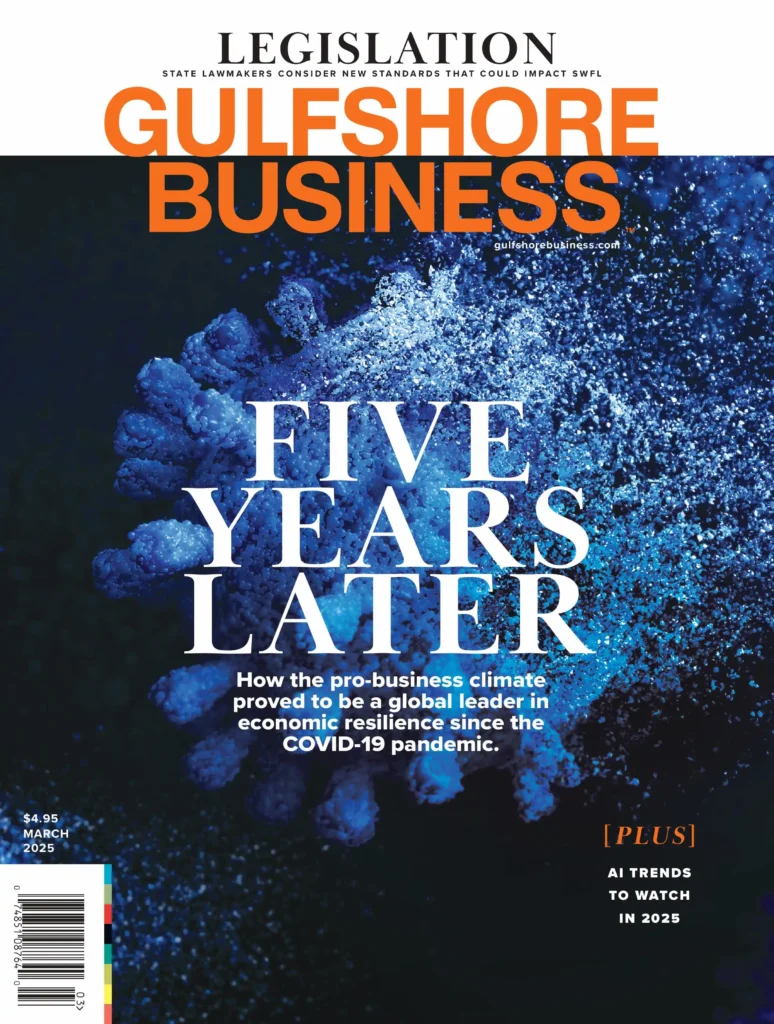When Nicola and Stephanie Bunnett opened their combination art gallery and coffee shop Kunjani on Seagate Drive in Naples last year, they hope to do more than provide a comfortable place for people to grab a cup of coffee and enjoy some culture. The mother/daughter duo also created a plan for their business to have a strong nonprofit angle.
The Bunnetts left Zimbabwe in 2007 with one suitcase each and received political asylum in the U.S. Nicola ran an art gallery on Fifth Avenue South for more than eight years, while daughter Stephanie and son Jeffrey attended school locally. Nicola and Stephanie created the store to reflect their shared personal and professional ethos, which is three-pronged, Nicola says: To buy from disadvantaged African artists, most of whom are women; to “create a safe haven, a home away from home coffee shop for locals and visitors to Naples;” and to establish the nonprofit Kunjani Project, whose first mission is to help bring water to those in Zimbabwe “who walk the distance of a marathon to get water every week. Once you have to carry your own water you will realize the value of every drop.”
The two women, who now employ six staffers plus two more in season, don’t take salaries themselves, so they can plow revenue back into buying inventory and building the business. (Both women work at Heritage Builders in the Accounts Department and run Kunjani in their off hours.) They could never find a divine place to go for a coffee in town, so they created one. And the coffee shop comprises 50 percent of Kunjani.
They depend on two local organic roasters, Black Tulip and Perla, and buy from local bakers and suppliers such as Mikkelsen’s, Lisa’s Gluten-Free Bakery, Juicelation and Kim’s Be Happy Cakes.
The name they chose reflects their idea for the shop: “Kunjani is a greeting in Xhosa [their native language]. How is it? We used to say Kunjani Shamwari. This means hello, my friend. We thought Kunjani very apt, and it reminds us of our home. The country we lost.”
When asked about any parallels between Zimbabwe and Naples, Nicola says, “The only similarities between Zimbabwe and Naples is the flora and fauna.” She goes on to explain that “Zimbabwe has been under a dictatorship since 1980. The people are starving, with no electricity five days out of seven. No running water. Scarce amounts of food in the shops. No law and order, with your life in jeopardy every single day.” The chaos in their home country is one reason the Bunnetts wanted to improve people’s lives with their business. “It is vital to base our lives and our business on kindness, love and gratitude,” Nicola says.
What is their favorite part of running the shop? “The joy on the faces of our artists when we place orders is the happiest part for us,” Nicola says. She explains that it’s an affirmation that what they do “is changing lives for the best.” Nicola continues, “Behind every African woman in Africa stand seven dependents. We touch 300 artists directly with the orders we place. So indirectly we must be touching over 2,100 lives.”
When asked what’s next for Kunjani and the Bunnetts, Nicola says “we pray we keep Kunjani healthy and thriving for the artists who rely on us and for the Naples community who have embraced us with open arms.” Her overall philosophy is simple: “We live in gratitude every day. Whatever difficulties come to us we deal with them there and then.”




